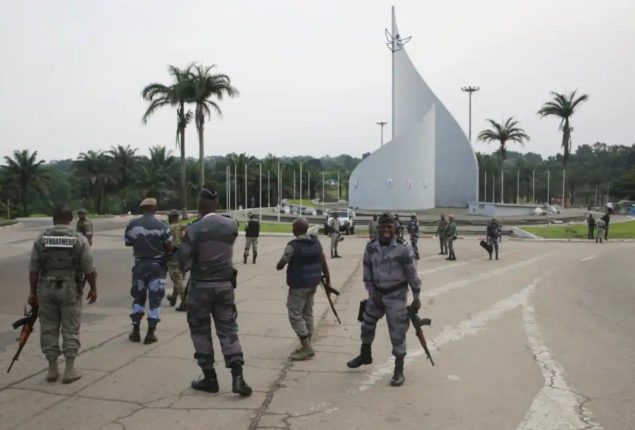Joe the Plumber of Barack Obama question passes away at 49
Samuel Joseph Wurzelbacher, widely known as 'Joe the Plumber' due to his...

Soldiers in Gabon declared coup and permanently close borders
Following the announcement by the state electoral commission that President Ali Bongo Ondimba had secured a third term, a faction of high-ranking Gabonese military officials appeared on national television in the early hours of Wednesday, asserting their takeover.
These officers claimed to be speaking on behalf of the entire security and military apparatus of the nation when they made their televised address.
Their statements included the dissolution of state institutions, the nullification of the election results, and the imposition of an indefinite border blockade.
Subsequent to their appearance on television, reports of intense gunfire emerged from Libreville, the capital city. The government of the oil-rich OPEC member country, however, did not immediately respond.
“In the interest of the Gabonese people… we have opted to safeguard peace by terminating the existing regime,” declared the officers.
If their efforts succeed, this would mark the eighth coup in the West and Central African region since 2020. The series of coups witnessed in countries such as Mali, Guinea, Burkina Faso, Chad, and Niger have had detrimental effects on democratic advancements in the region in recent times.
Just the previous month, the military took control in Niger, sending ripples of concern across the Sahel and attracting the attention of global powers with vested strategic interests.
Tensions within Gabon escalated in the aftermath of the presidential, parliamentary, and legislative elections. While President Bongo aimed to prolong his family’s longstanding rule, the opposition pressed for transformative change.
The absence of international observers, suspension of foreign broadcasts, and disruptions in internet connectivity raised significant doubts about the transparency of the electoral procedures. These concerns led to the imposition of nationwide curfews and disruptions in internet services.
In 2009, President Bongo, aged 64, faced off against 18 contenders for the presidential position, with six among them endorsing a joint nominee, Albert Ondo Ossa. His team vehemently denied allegations of electoral fraud.
The year 2016 saw a spate of violent street protests that culminated in the torching of the parliament building and a government-enforced internet blackout that lasted several days.
To stay informed about current events, please like our Facebook page https://www.facebook.com/BOLUrduNews/.
Follow us on Twitter https://twitter.com/bolnewsurdu01 and stay updated with the latest news.
Subscribe to our YouTube channel https://bit.ly/3Tv8a3P to watch news from Pakistan and around the world.
Catch all the International News, Breaking News Event and Latest News Updates on The BOL News
Download The BOL News App to get the Daily News Update & Follow us on Google News.